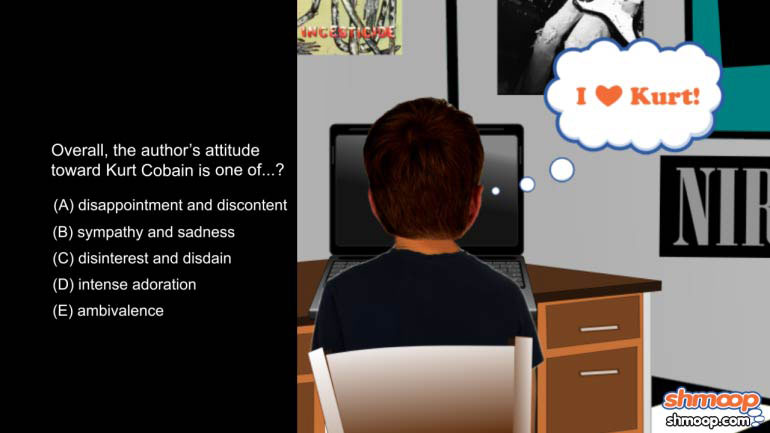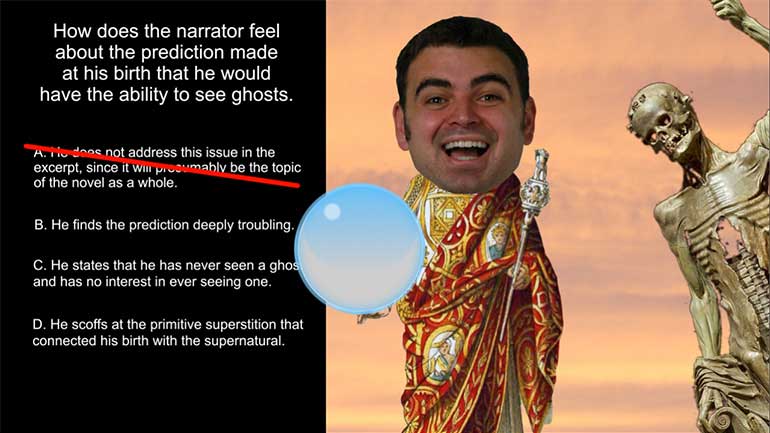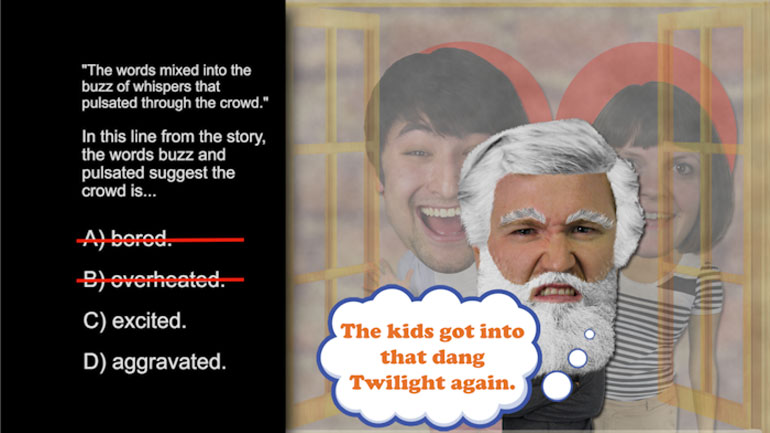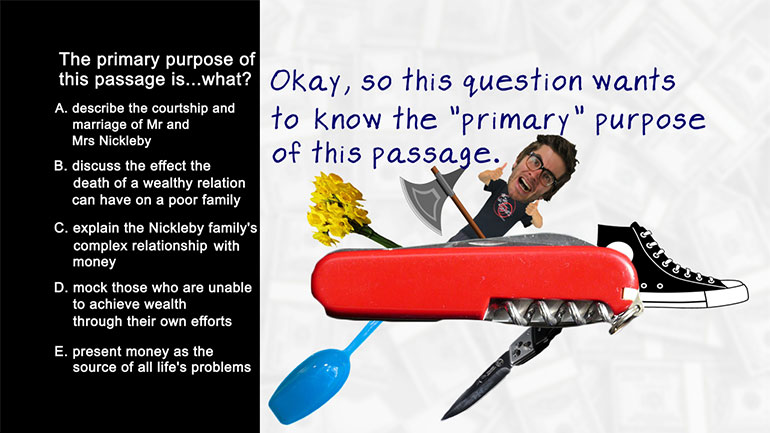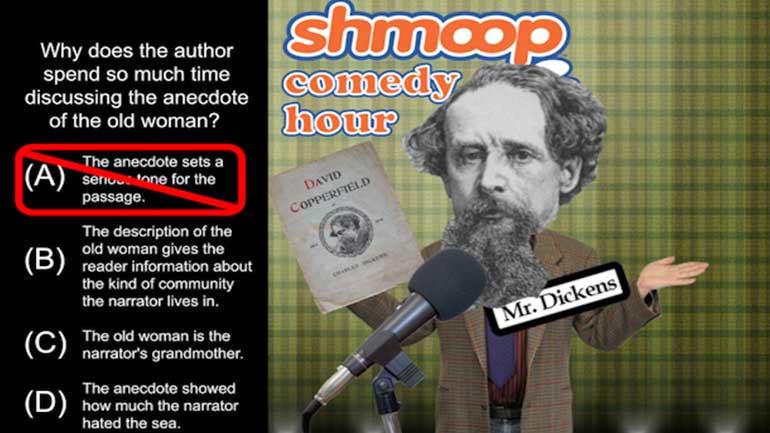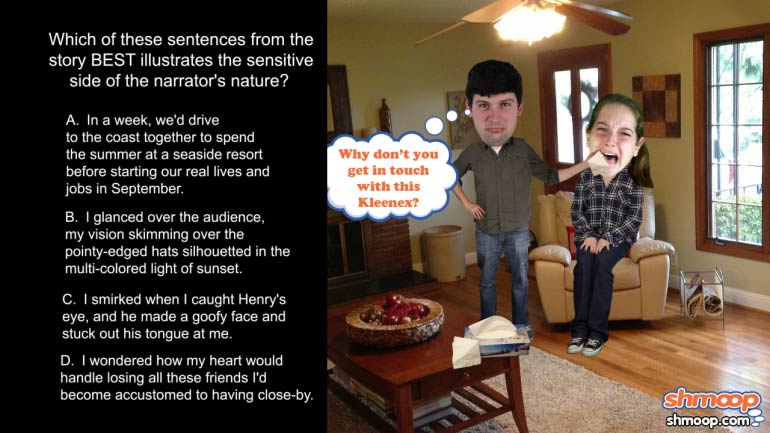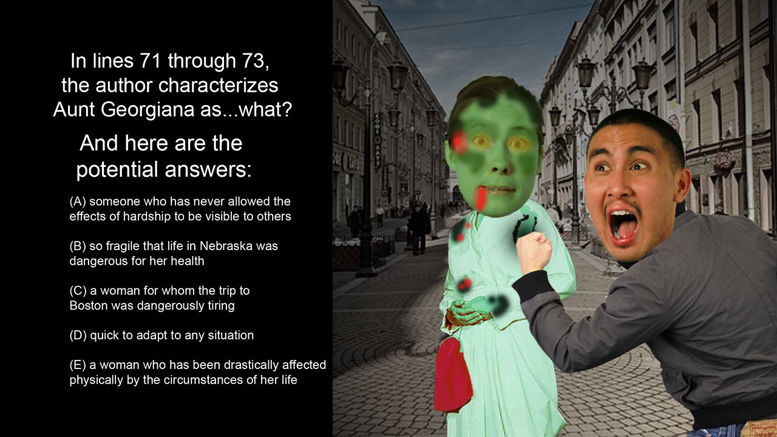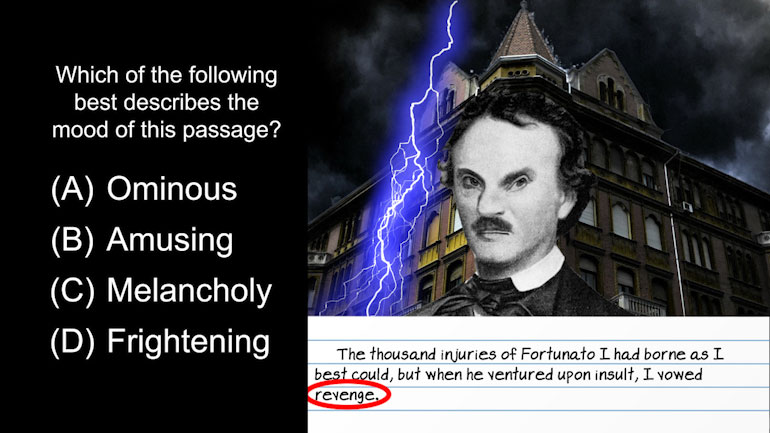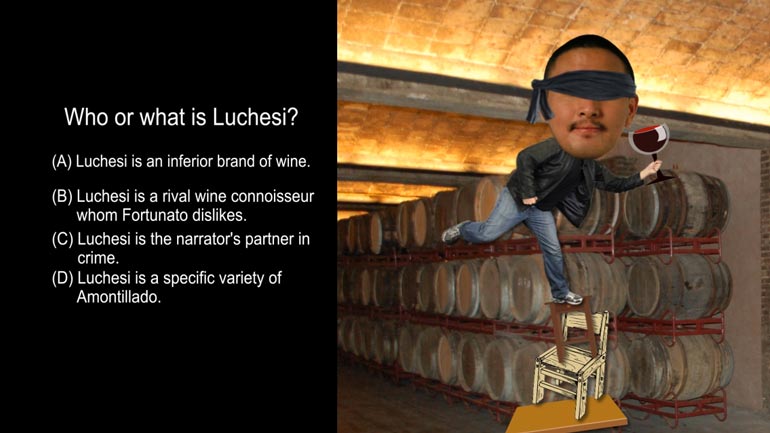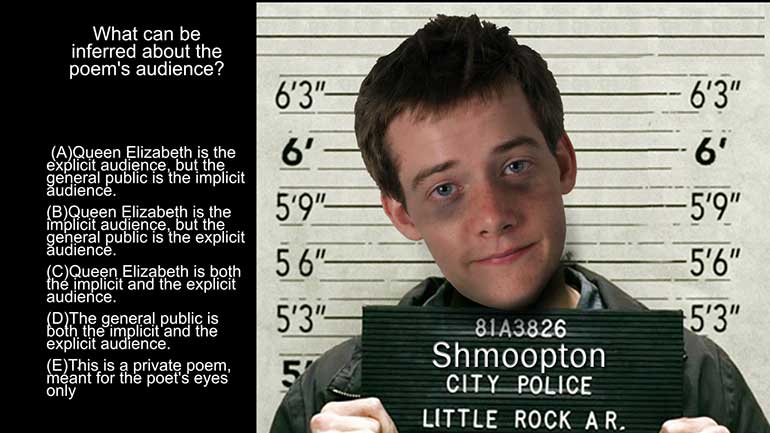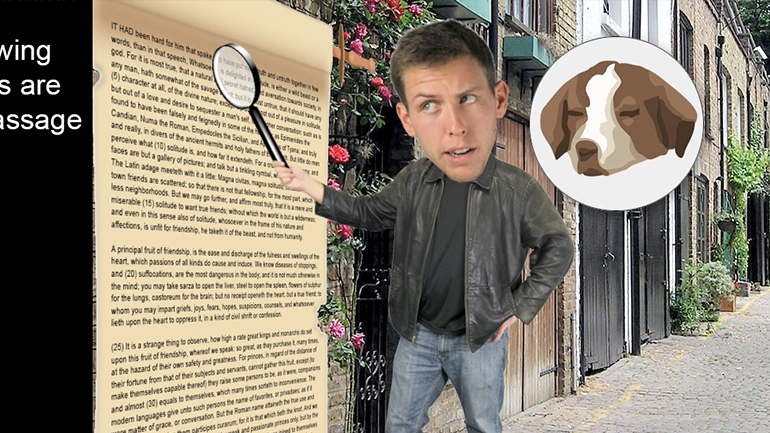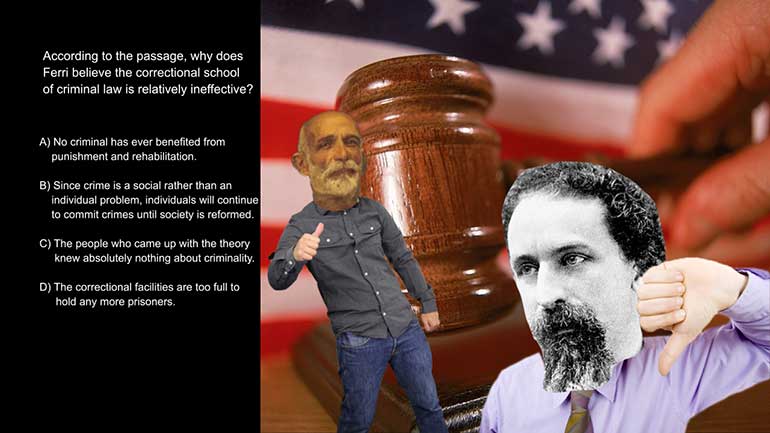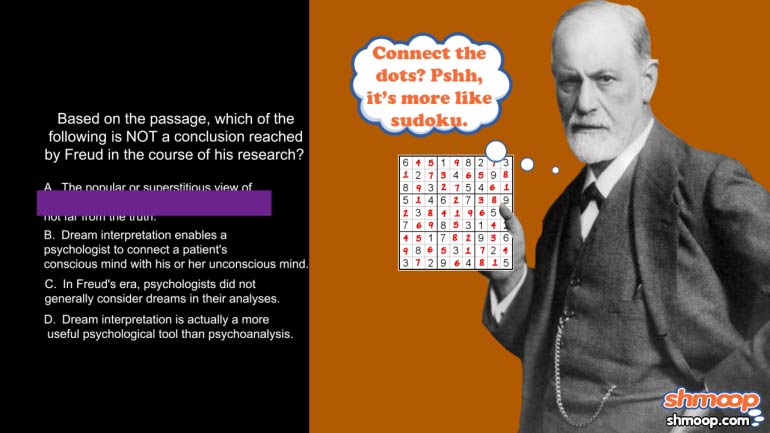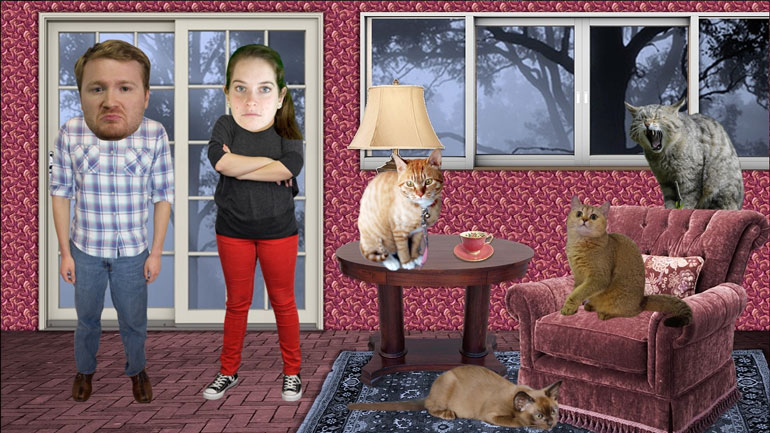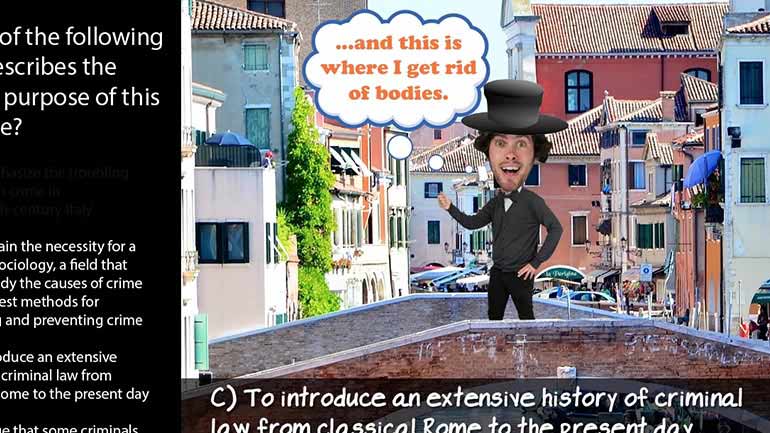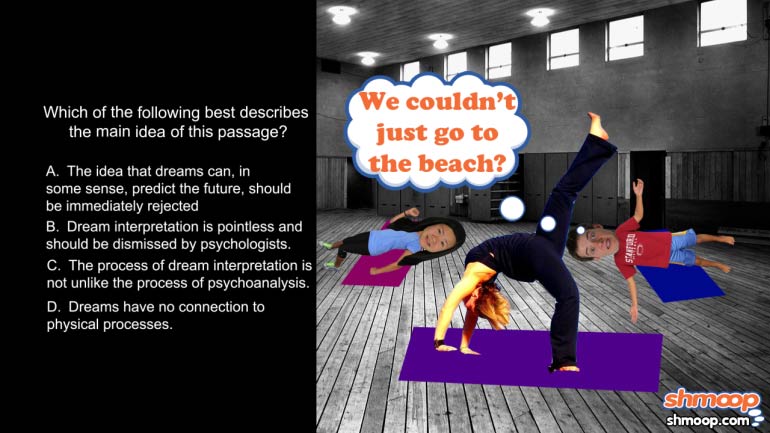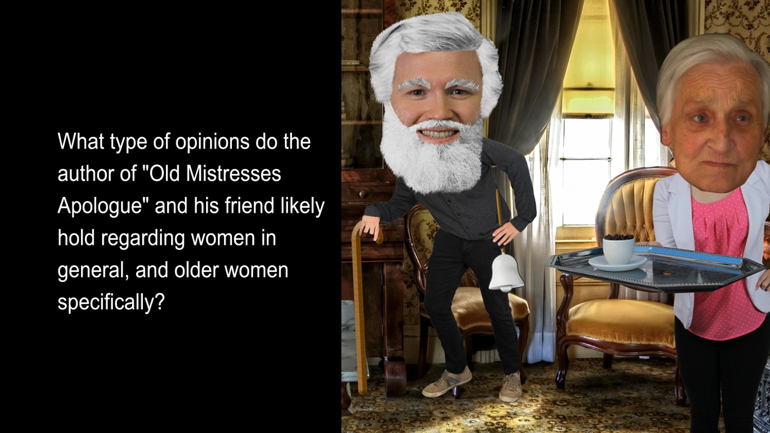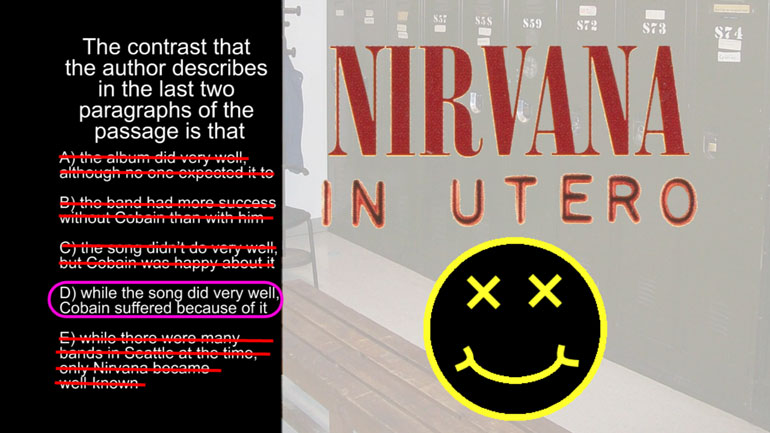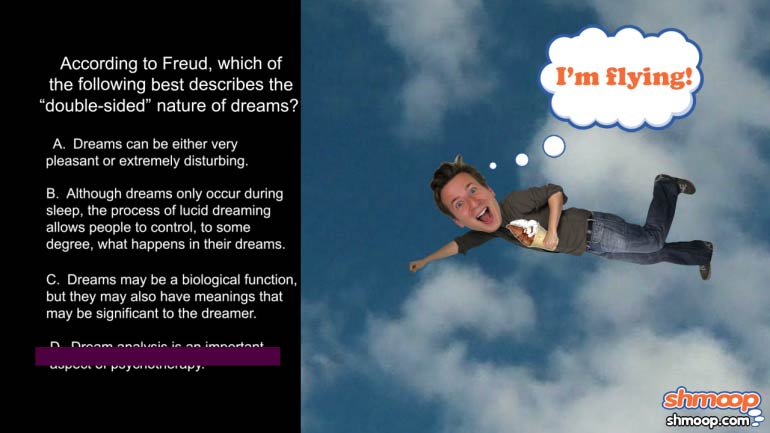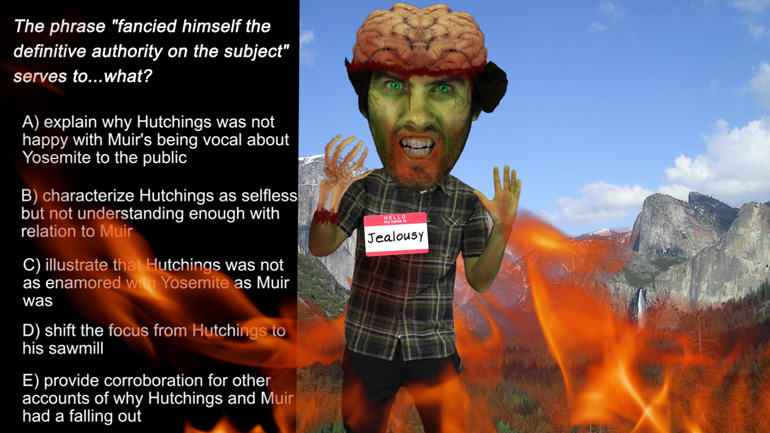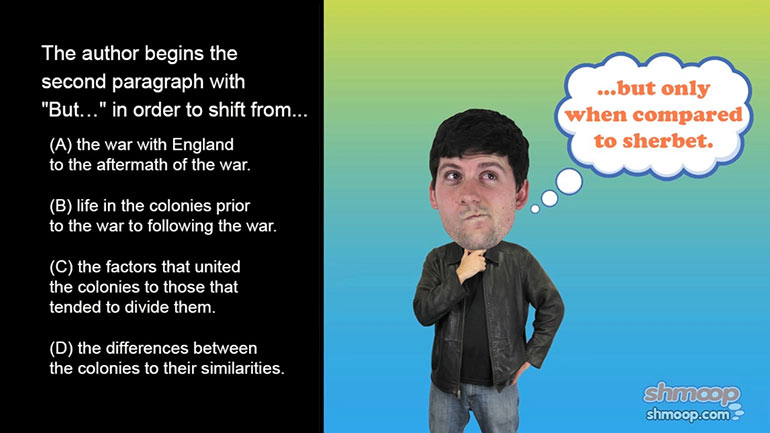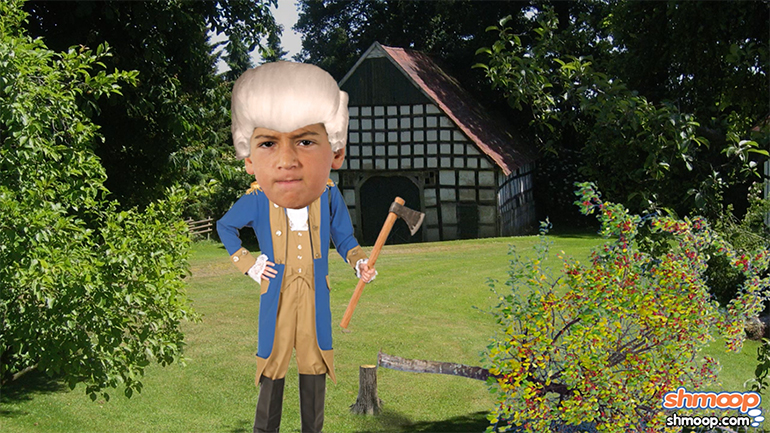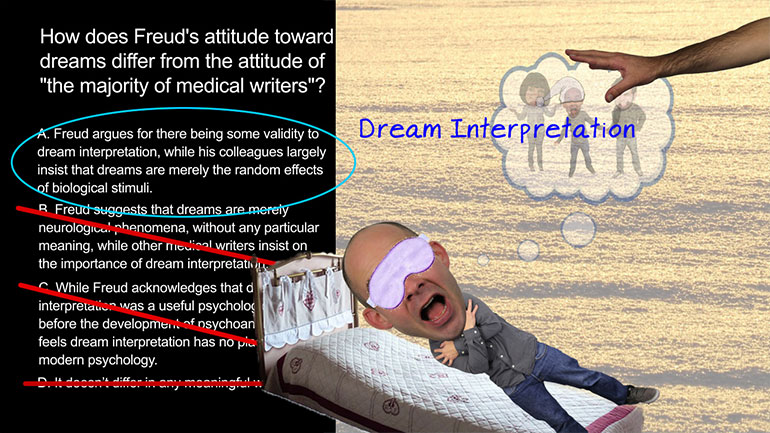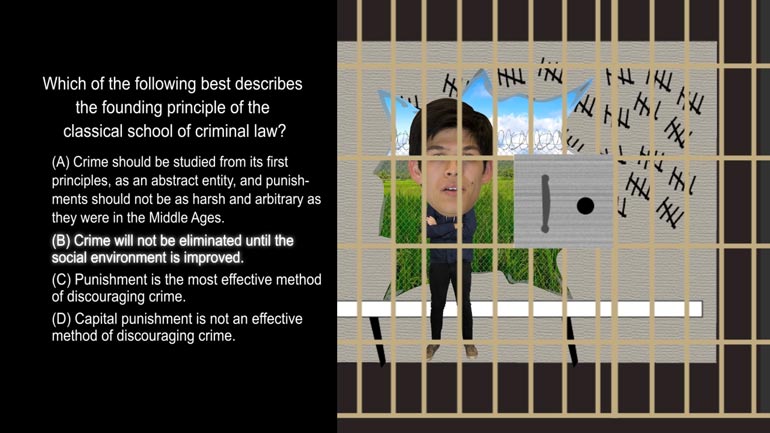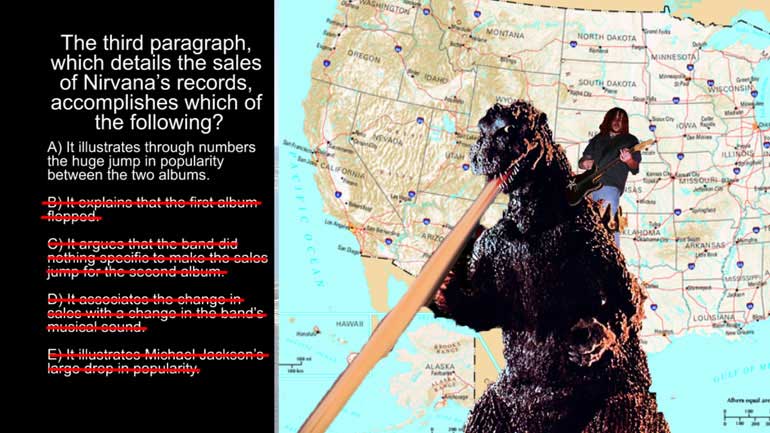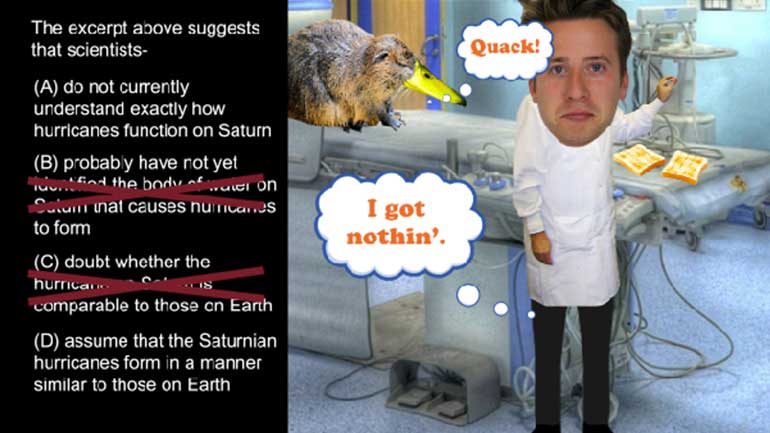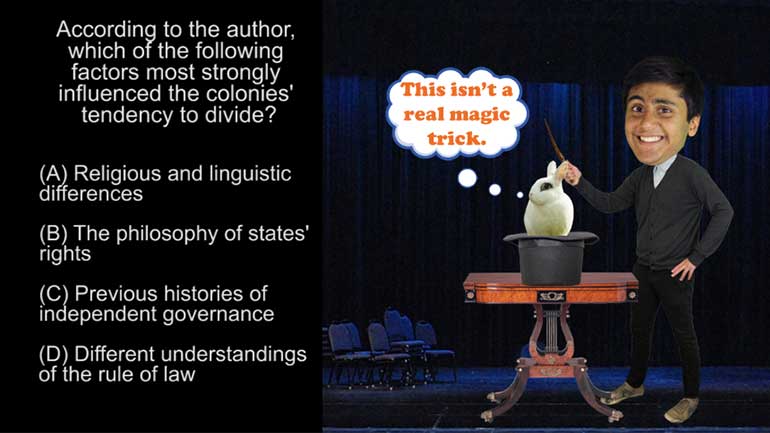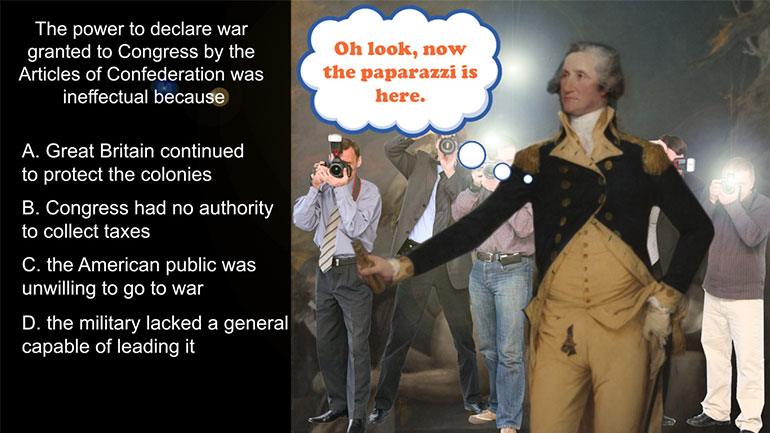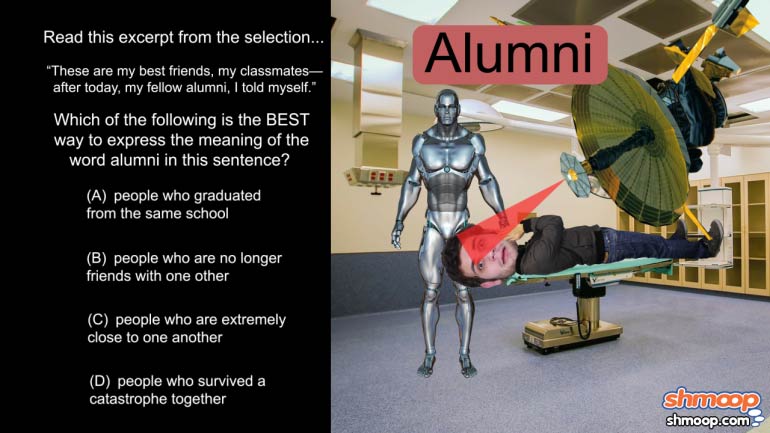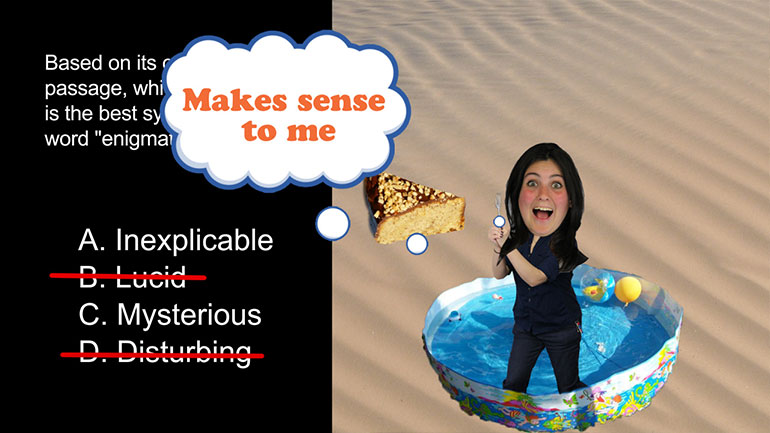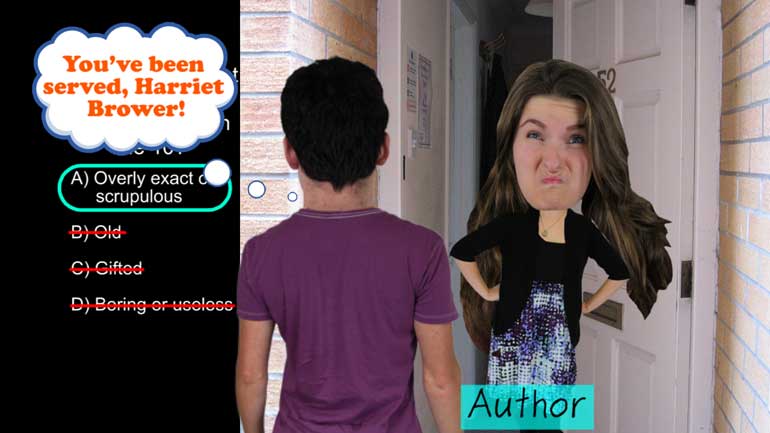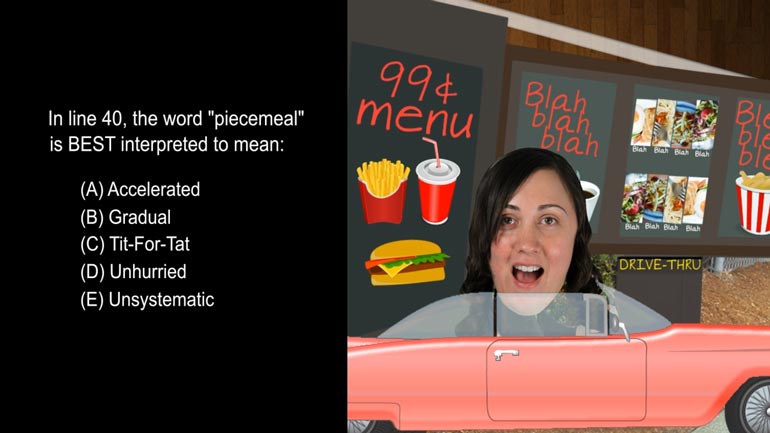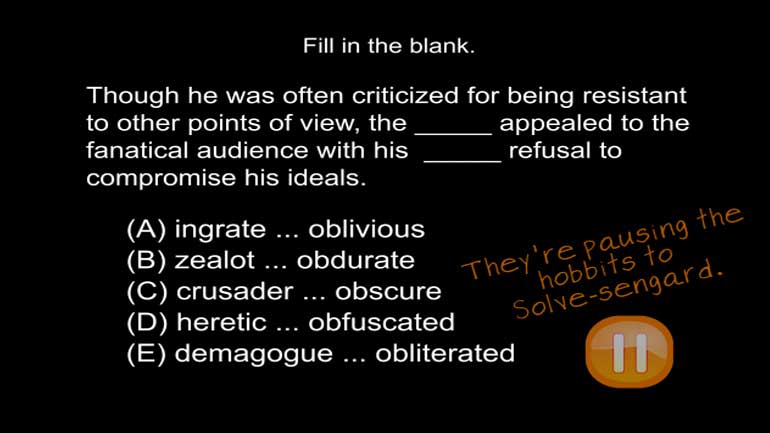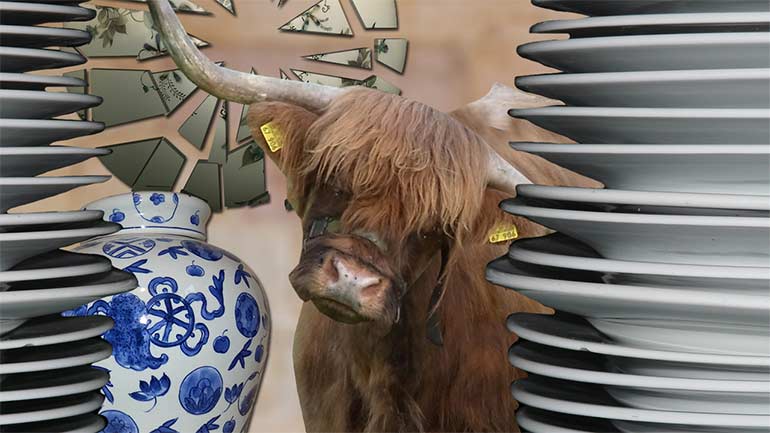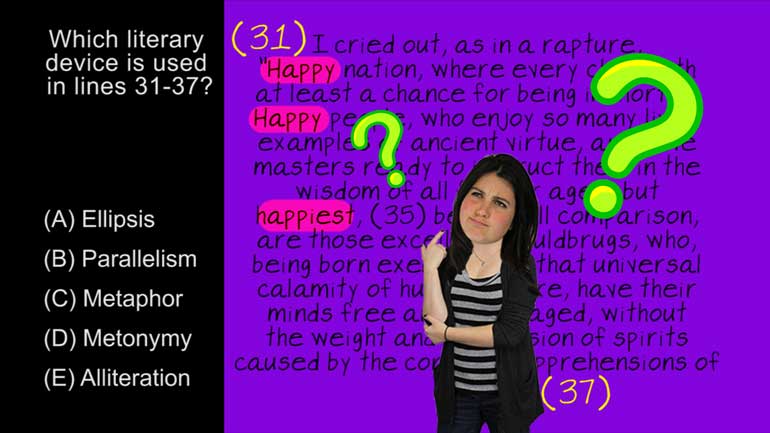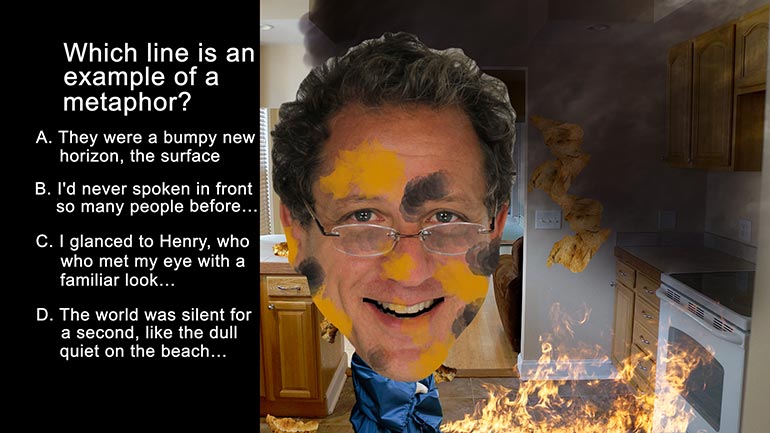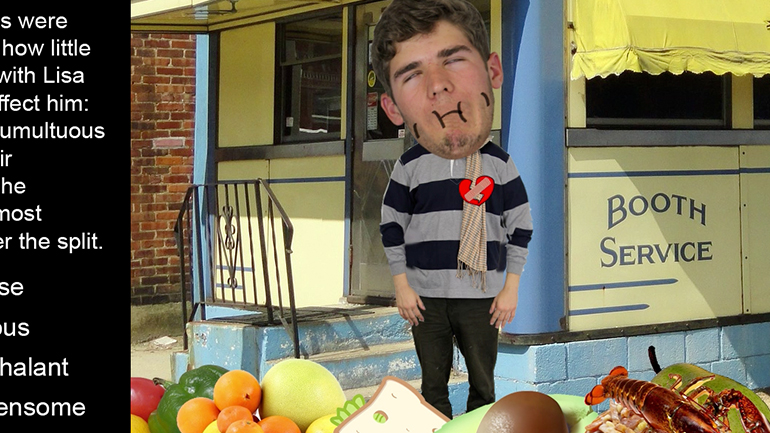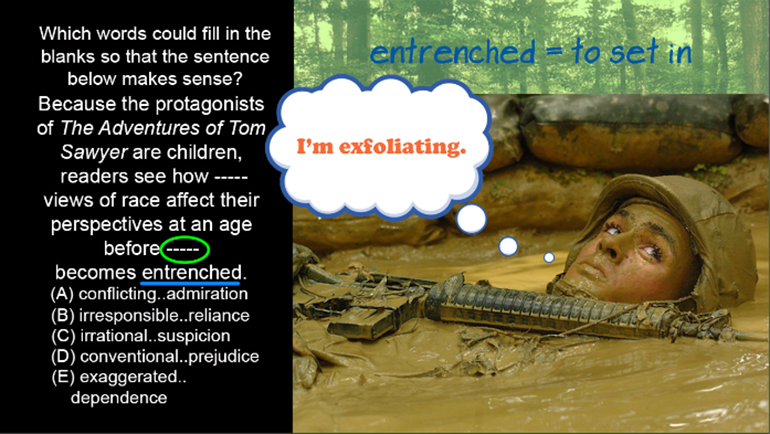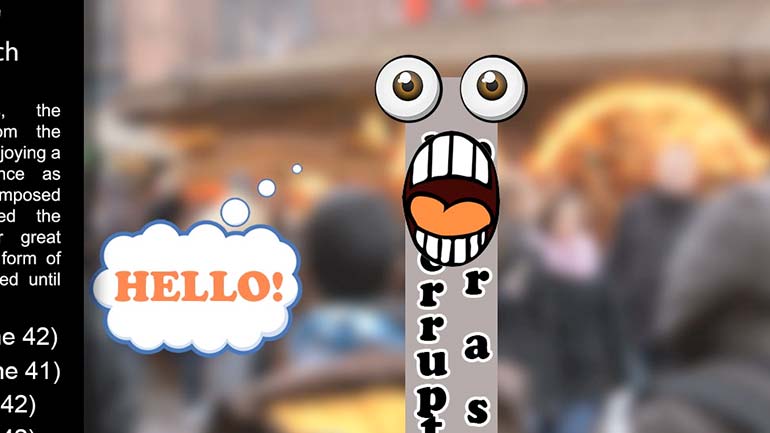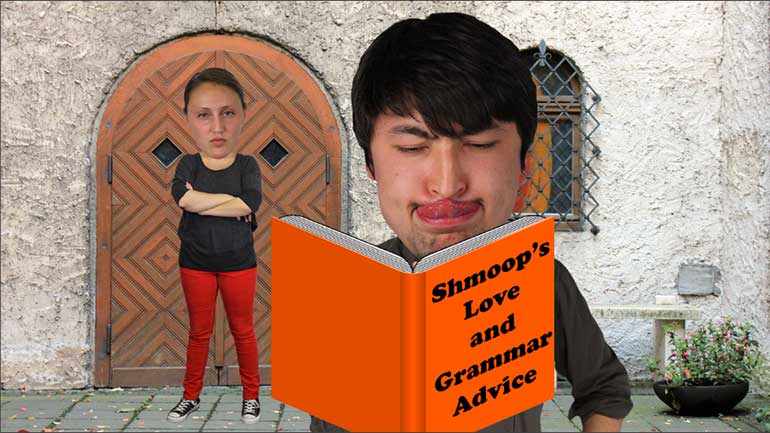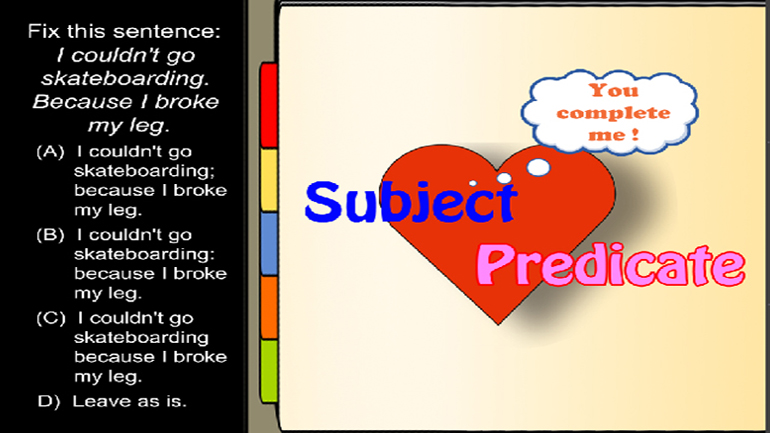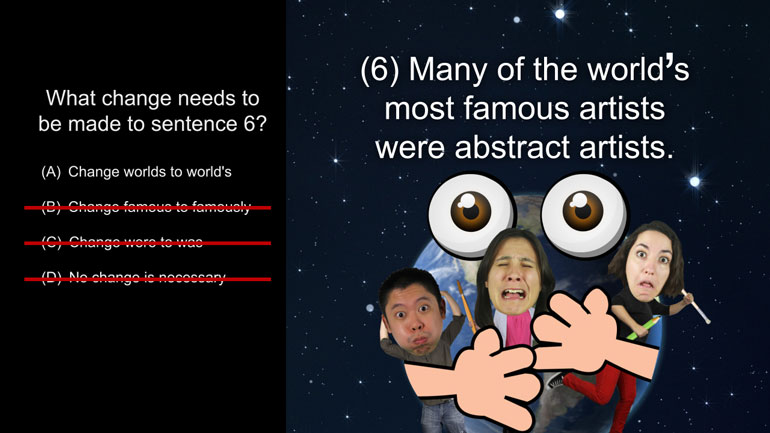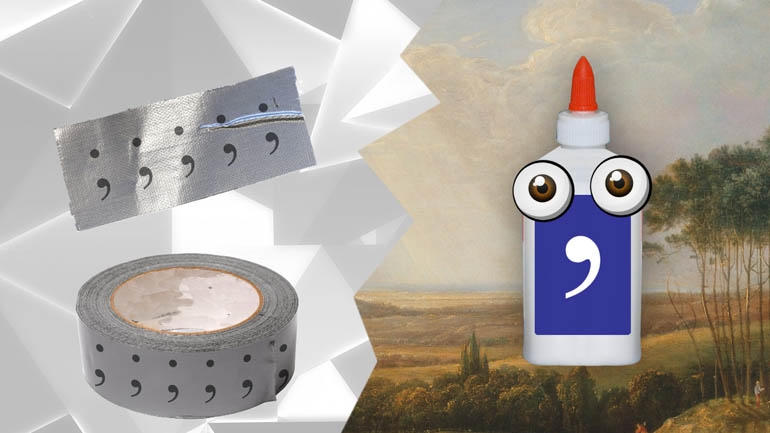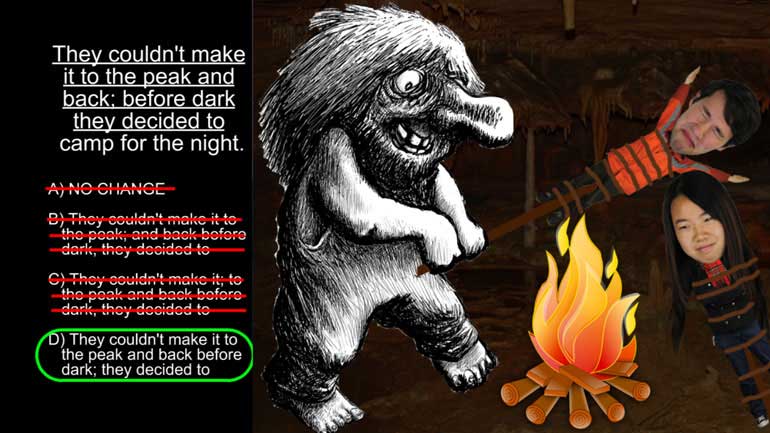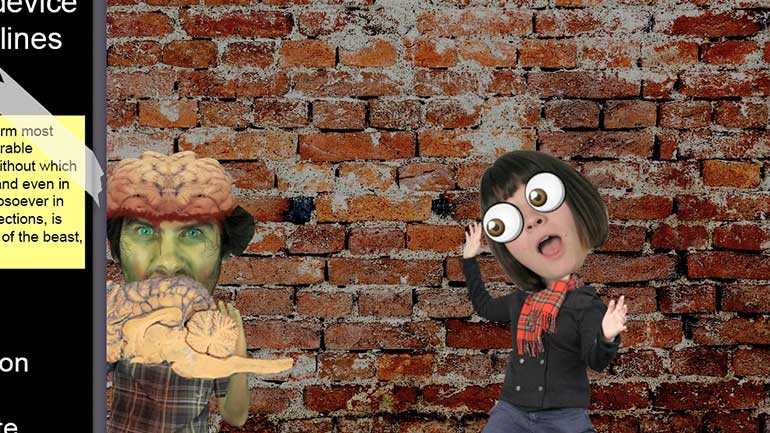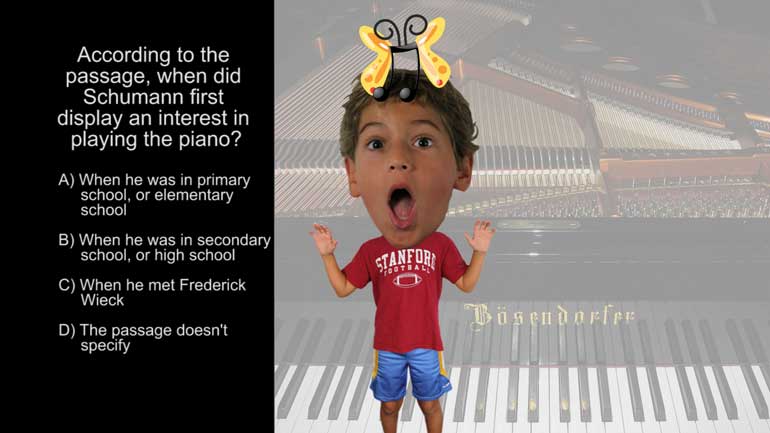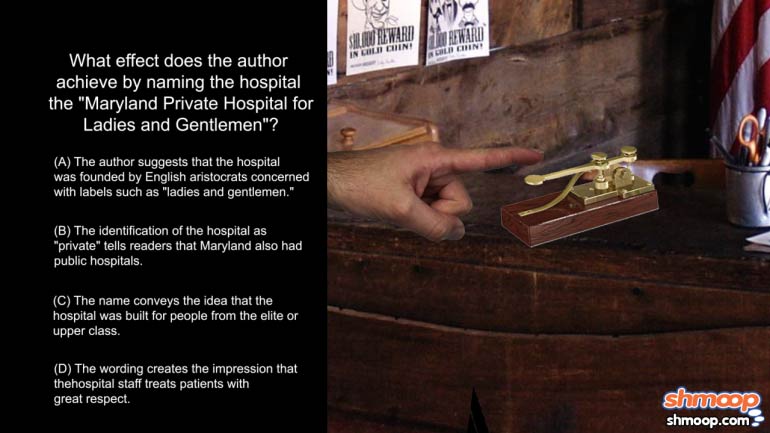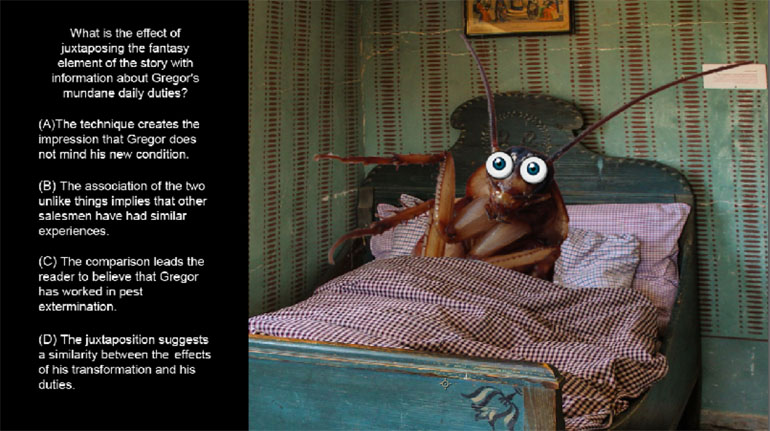ShmoopTube
Where Monty Python meets your 10th grade teacher.
Search Thousands of Shmoop Videos
TNReady Videos 296 videos
ACT Reading Prose Fiction Drill 1, Problem 4. How does the narrator feel about the prediction made at his birth that he would have the ability...
AP® English Language and Composition: Comprehension Drill 1, Problem 1. The speaker would agree with all of the following statements except what?
AP English Language and Composition 1.10 Comprehension 460 Views
Share It!
Description:
AP English Language and Composition: Comprehension Drill 1, Problem 10. The metaphor used in lines 62 and 63 is best interpreted to mean which of the following?
- Vocabulary / Demonstrate understanding of figurative language, word relationships, and nuances in word meanings
- Vocabulary / Demonstrate understanding of figurative language, word relationships, and nuances in word meanings
- Vocabulary / Demonstrate understanding of figurative language, word relationships, and nuances in word meanings
Transcript
- 00:00
[ musical flourish ]
- 00:03
And here's your Shmoop du jour, brought to you by a bull in a china shop,
- 00:07
a saying recently criticized
- 00:09
by the Bovine Anti-Defamation League. [bull breaks fine china]
- 00:22
All right, let's go. In context,
Full Transcript
- 00:24
the metaphor used in lines 62 and 63 is
- 00:27
best interpreted to mean which of the following?
- 00:29
And here are the potential answers. [multiple choice answers on screen]
- 00:31
[ mumbles ]
- 00:39
Even if we haven't heard our grandma use this
- 00:41
old school saying, we pick up what this passage is
- 00:44
putting down through context clues.
- 00:47
When the speaker mentions barbarians chucking Rembrandts
- 00:50
into trash cans, we get the picture that we're talking about some
- 00:53
crude dudes with no appreciation for art. [ burp ]
- 00:56
Choice B claims that these art-hating hooligans
- 00:59
came from outside Europe. [map of Europe with barbarians on ships]
- 01:01
However, the speaker specifically says that the barbarians
- 01:04
inherited the art, meaning
- 01:06
they were Europeans themselves. [barbarian lounges on couch with art on walls]
- 01:08
C also claims that these foolish barbarians were foreigners,
- 01:11
this time from the East. It's trying to fool us, [map of Europe with barbarians driving in from east]
- 01:14
because the metaphor refers to a "china shop."
- 01:17
Well, we already know that the barbarians were European.
- 01:20
Answer D gets the award for being most out of left field.
- 01:23
What on earth would a bull destroying things
- 01:25
in a china shop have to do with people being too busy
- 01:28
working to care about art?
- 01:30
Answer? Zilch. E is kinda in the right ballpark.
- 01:33
The barbarians definitely didn't appreciate art,
- 01:36
but chances are their lack of appreciation [artwork on fire in trash can]
- 01:38
isn't the thing that literally provoked their rampage.
- 01:42
Choice A hits the nail on the head.
- 01:44
Really, the metaphor is simple.
- 01:46
Bull destroying a china shop equals
- 01:48
barbarians destroying art.
- 01:51
[ moo ]
Related Videos
AP English Language and Composition: Passage Drill Drill 1, Problem 2. What is the speaker's primary purpose in using onomatopoeia in line four?
AP English Literature and Composition 1.1 Passage Drill 7. The primary purpose of this passage is what?
Wishing upon a star may help you pass your AP English Language and Composition test, but answering this question would be a safer bet.
Take a look at this shmoopy question and see if you can figure out which device the speaker employs the most.
Feel like shifting gears and answering a question about shifting tones? We've got you covered. Take a look at this question and see if you can foll...
